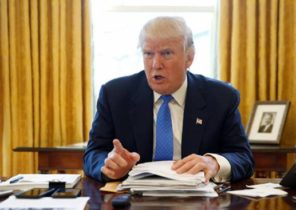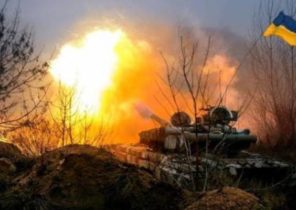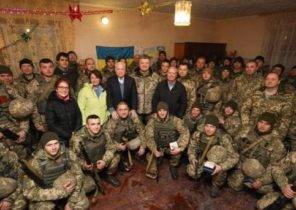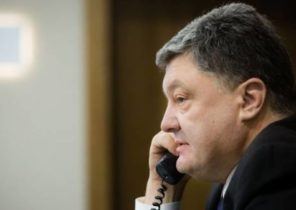
A series of events preceded the aggravation of the situation in the Donbas. Negotiations of the President of Ukraine Petro Poroshenko with German Chancellor Angela Merkel took place after a telephone conversation with U.S. President Donald trump. The German Chancellor ahead of Vladimir Putin, who spoke to trump after on fighting ISIS (banned terrorist organization) in Syria and the Ukraine, but not on sanctions.
Poroshenko had to interrupt his visit to Germany due to the escalation of the situation in Avdeevka. After the UN security Council expressed the expected concerns, and Washington belatedly repeated the well-known “mantra” about the need to implement the Minsk agreements. While the situation at the plant escalates, the Kremlin said about the necessity of a speedy dialogue between the United States, the Russian Federation. What kind of support from Germany and the EU expect Ukraine in a situation of rising tensions in the Donbass and will allow Europe’s “Grand bargain” trump and Putin, says Andreas Umland, a German political scientist, senior researcher, Institute for Euro-Atlantic cooperation in Kiev.
In response to the escalation of the conflict in the Donbass can be toughened sanctions against Russia. This is one way of countering aggression in Eastern Ukraine. But Germany, the leading country in the EU, the sanctions may not hold a national policy, its intentions for such actions is not enough. This policy is at the EU level. Germany Ukraine should not count on any military support, it is likely to be political and diplomatic.
In the future one can also imagine that at the European level will be made the decision on toughening of sanctions against Russia. But keep in mind the fact that there are European countries that are much less critical look at Russia and all these things. The decision to tighten sanctions taken jointly by all 28 (or soon 27) EU countries and there are always those for whom Ukraine is not so important. For Ukraine in this issue is a dead end: a quick decision by the EU will not have to wait. It can only be hoped that bilateral relations can be reached to some agreements. But in the case of the EU, things are difficult — it is slow to respond. Yet the only thing you can expect — the extension of existing sanctions.
Western support for Ukraine would be much higher if the country has undertaken more decisive reforms. The image of Ukraine in the last three years has not changed much. Yes, fixed reform, but the country is still perceived as a corrupt, oligarchic state. This partly explains the restraint and Germany, and other countries to assist Ukraine.
Many observers have pointed out that the escalation in the Donbas, in Avdeevka, due to the fact that the Kremlin believe in the incapacity of the US in foreign policy, inside the White house there are different positions concerning the Russian-Ukrainian conflict. And understanding Moscow situations could be the main reason for Russian actions in the Donbass.
Escalation may also associated with Poroshenko’s trip to Germany to show the Berlin, what Russia has military-political potential, and to prevent any rapprochement between Germany and Ukraine. Other are discussing today, that the reason for the escalation may be the preparation by Russia of possible grounds for the conclusion “a great deal” between trump and Putin. However, such transactions have passed, a kind of “Yalta-2” likely will not. I can’t imagine that the US and Russia can agree on the fate of Ukraine without its participation.
That could make Ukraine, for its part, in order to get out of this situation is to develop the idea of cooperation with the countries of Eastern Europe from the Baltic to the Black sea. With countries that have the same problem — Putin’s Russia.
Key country — Poland, which in General is very sympathetic to Ukraine. But over the past two years, unfortunately, the two countries have developed a conflict in connection with the policy of memory pursued by Ukraine.







